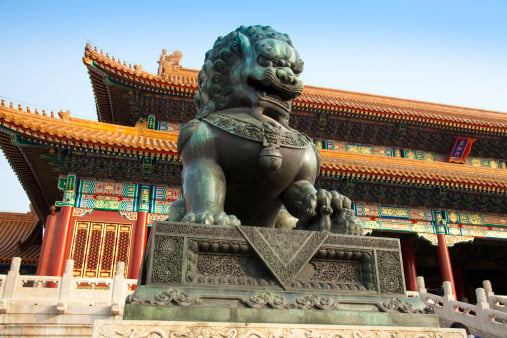Are China’s PMI numbers inaccurate? Are other key economic numbers issued by the People’s Republic wrong because the government wants to promote the nation’s ongoing manufacturing growth? The questions get asked each time China issues important numbers, and they should get asked again. Source: Thinkstock
Source: Thinkstock
China reported that its official purchasing managers’ index fell to 50.6 in April from 50.9 in March. The drop seems small; a figure above 50 signals expansion. However, the slide was enough to cause concern among many economists who believe it is a sign that China’s gross domestic product (GDP) could drop below 8%.
Many of those people who have written that they believe China’s numbers are small operate on the fringe of the world of economists, which causes skepticism about their views. Larry McDonald, who publishes a newsletter, wrote an essay titled “Is Chinese GDP the New Libor?” In it he claimed that some of the data issued by the government of the People’s Republic is contradicted by other data the government issues. Short seller Jim Chanos agrees, and he thinks that China misrepresents its inflation numbers to make it appear that costs are not rising quickly.
More-mainstream experts have expressed worry about China’s numbers as well, including UBS, Goldman Sachs and Standard Chartered.
Zerohedge reports on whether China manipulates its economic data:
After China’s statistics bureau reported third-quarter GDP in October, Standard Chartered Plc analysts said the 7.4 percent increase was “too good to be true” when compared with the slowdown in electricity production and the readings of a manufacturing index, while London-based Capital Economics Ltd. said its own analysis indicated expansion of about 6.5 percent.
And:
“It is possible that local governments may have tried to boost exports data by either making round trips in special trade zones” or by exporting “earlier than otherwise in an attempt to improve the annual exports data,” Goldman Sachs’ Beijing-based economists Yu Song and Yin Zhang wrote the same day.
But why does it matter?
First is that the practice, if it actually goes on, undermines trust in any figures China puts out. Some of these are used by institutional investors to make bets on currencies and other financial instruments. Some U.S. companies set investment strategies for China based on what its government claims. It has been widely assumed that the Chinese middle-class consumer is active enough to support huge imports from overseas and the building of factories and stores.
The more important issue is whether China fundamentally lies about a broad range of issues, the information about which the government controls. These run from its claims that it has never launched a cyberattack on U.S. interests to financial and economic information it uses to support control of its currency — a point of friction between China and many of its trading partners.
Does China lie about its PMI? That should be the least of the worries of economists who track the numbers given out by the People’s Republic.
Sponsored: Attention Savvy Investors: Speak to 3 Financial Experts – FREE
Ever wanted an extra set of eyes on an investment you’re considering? Now you can speak with up to 3 financial experts in your area for FREE. By simply
clicking here you can begin to match with financial professionals who can help guide you through the financial decisions you’re making. And the best part? The first conversation with them is free.
Click here to match with up to 3 financial pros who would be excited to help you make financial decisions.
Thank you for reading! Have some feedback for us?
Contact the 24/7 Wall St. editorial team.



